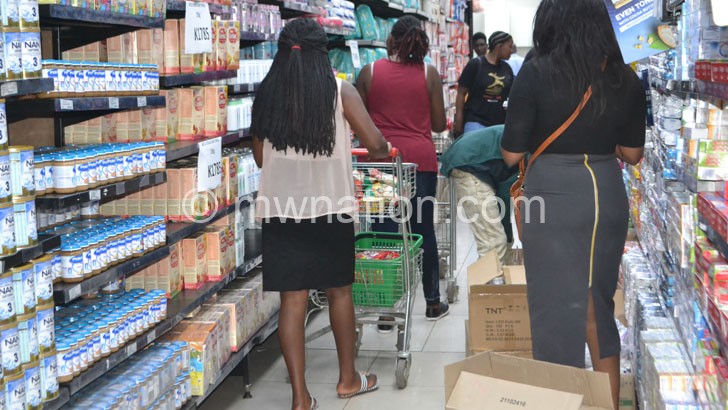Economic recession looms—NBM plc
National Bank of Malawi (NBM) plc says there are fears that the economy could slip into recession this year as gross domestic product (GDP) is projected to contract by -3.5 percent due the Covid-19 pandemic.
In its July Monthly Economic Review published on Saturday, NBM plc said like many countries across the world, Malawi’s growth prospects are shrouded in uncertainty with the worst-case real GDP to experience a recession.

Reads the review in part: “Burgeoning public debt and deficit spending coupled with the worst-case recession forecast means that the new administration may not have recourse to a fiscal stimulus package to kick-start the economy. Fiscal consolidation remains the only viable option for the new Minister of Finance.
“Options include enhanced domestic and external resource mobilisation and public expenditure efficiency, prioritisation and monitoring not only to right size the civil service but also streamline procurement.”
The Malawi Stock Exchange-listed bank said the economy is expected to rebound in 2021, growing by an estimated 4.5 percent buoyed by the growth in agriculture; wholesale and retail trade; mining and quarrying; electricity, gas and water; information and communication and financial and insurance services.
In economics, a recession is a business cycle contraction when there is a general decline in economic activity.
In 2001, the country’s economy experienced a recession when it grew by -5.0 percent due to drought-related conditions.
In the wake of the Covid-19 pandemic, Treasury revised downwards the country’s 2020 growth projection from 5.5 percent to 1.9 percent.
Recently, the African Development Bank (AfDB) said in the worst-case scenario due to Covid-19, Malawi could register a 0.6 percent growth with annual inflation rising to 12.4 percent from an initial projection of 8.4 percent.
In an interview on Saturday, Betchani Tchereni, associate professor of economics at The Polytechnic—a constituent college of the University of Malawi— said a shrinking economy is worrisome as it could force government to borrow while at the same time pushing more people into poverty.
He said: “Growth is what we need to deal with poverty in the country.
“It is when an economy is growing that industries get to be created which then creates more jobs, investor confidence is boosted and tax revenues increase, thereby increasing expenditures on social goods and services such as schools, health, education and roads.”
NBM plc has also projected that the stability of the kwacha will continue in 2020 with the local unit expected to trade at an average of K750 to a dollar on the back of adequate foreign exchange reserves which remain above the recommended three months of imports.
The bank has further projected that the policy rate—the rate at which commercial banks borrow from the central bank as the lender of last resort, will be maintained at 13.5 percent with the monetary authorities opting to undertake a targeted quantitative easing to fund infrastructure projects and stimulate liquidity within the banking sector. Headline inflation on the other hand is expected to average 10.7 percent in 2020 slightly up from an average 9.2 percent and 9.4 percent recorded in 2018 and 2019, respectively, said the bank.





